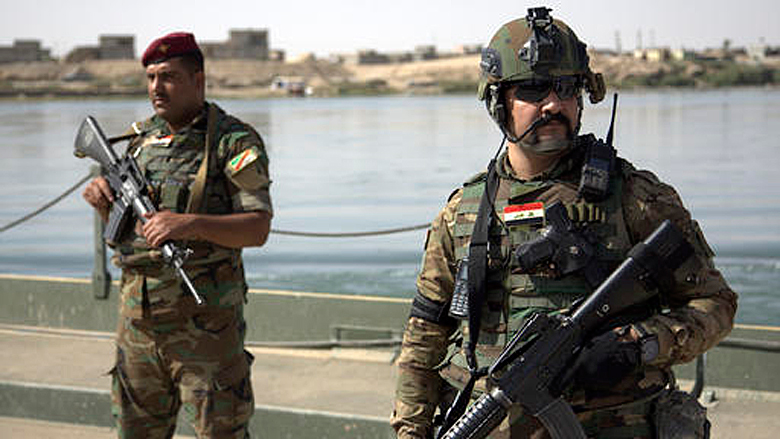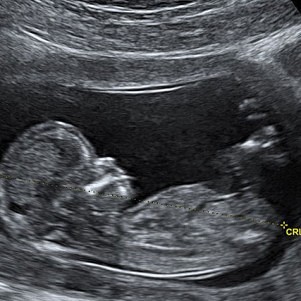Battle begins to expel ISIS from Mosul
By CNS News | October 17, 2016, 6:24 EDT
 Iraqi soldiers secure a temporary pontoon bridge near Qayara Air Base, northern Iraq, on Saturday, Oct. 15, 2016. (AP Photo/Adam Schreck, File)
Iraqi soldiers secure a temporary pontoon bridge near Qayara Air Base, northern Iraq, on Saturday, Oct. 15, 2016. (AP Photo/Adam Schreck, File) (CNSNews.com) – The most important battle yet in the campaign to dislodge ISIS jihadists from territory in Iraq and Syria began early Monday, when Iraqi Prime Minister Haider al-Abadi announced the offensive to retake Mosul was underway.
Iraq’s second-largest city, seized by ISIS more than two years ago, offers a major challenge to the U.S.-trained Iraqi army and Kurdish peshmerga fighters who comprise the majority of the 30,000-strong force arrayed against the terrorists.
In a battle that military officials and security analysts predict could take months rather than weeks, the urban terrain offers advantages to an enemy that has had many months to prepare for the expected assault. Tunnels designed both as staging posts for attacks and as escape routes, booby traps and built-up areas ideal for ambushes and suicide attacks are among likely factors as the offensive progresses.
“Anytime you’re looking at an urban warfare scenario, you’re looking at a lot of opportunities for the enemy to do things like hide behind civilians, hide behind internally-displaced persons, and attempt to slip out with them,” Colonel John Dorrian, spokesman for the anti-ISIS mission Operation Inherent Resolve, said in a briefing from Baghdad on Wednesday.
“They’ve had an opportunity to dig some pretty elaborate defenses and put up a lot of booby traps,” he said, adding that U.S. training of Iraqi forces focuses on those factors.
Dorrian said the operation could take “some time.”
U.S.-led coalition aircraft are providing close air support to the Iraqi and peshmerga forces.
The U.S. today has some 5,000 troops in Iraq. Their role is described by the U.S. government as one primarily of advising and training – not combat in the conventional “boots on the ground” sense.
U.S. troops’ return to Iraq – two-and-a-half years after President Obama oversaw the withdrawal of the last of them – began after ISIS overran Mosul in mid-2014 and its leader, Abu Bakr al-Baghdadi, declared a “caliphate” in a speech delivered from Mosul’s great mosque.
Beginning with just 300 U.S. military advisers, the numbers have swollen ever since, reaching 3,000 by the end of 2014, and passing the 4,000 mark by last April. The official “force management level” today stands at 5,262, according to the Pentagon.
Mosul, the capital of Ninawa (Nineveh) province, experienced considerable bloodshed during the Iraq war that began with the U.S. invasion to topple Saddam Hussein in March 2003.
Over the ensuing seven years, at least 213 U.S. military personnel were killed in Mosul. The deadliest years were 2004, when 54 American troops were killed, 2003 (38 fatalities), 2005 (34 fatalities) and 2008 (27 fatalities).
The predominantly Sunni city became a stronghold for al-Qaeda in Iraq, which would later morph into ISIS.
One of the deadliest single terror attacks of the war targeting U.S. forces occurred in Mosul on December 21, 2004, when 14 U.S. soldiers, four U.S. civilians and four Iraqi soldiers were killed when an Islamist suicide bomber detonated a device in a dining hall at the military base in the city.
Thirteen months earlier, 17 U.S. soldiers were killed when two Blackhawk helicopters collided over the city, as they maneuvered to avoid gunfire from insurgents on the ground.
Now Mosul – today home to up to 1.3 million people – is again at the center of a major military operation, this time with Iraqi forces in the lead.
“Our dearest people in Nineveh province, the victory bell has rung, and the operations to liberate Mosul have begun,” Abadi said in a televised statement. “I am announcing today the beginning of these heroic operations to liberate you from the brutality and terrorism of ISIS.”
“This is a decisive moment in the campaign to deliver ISIL a lasting defeat,” said Defense Secretary Ashton Carter, using an alternative acronym for ISIS.
“The United States and the rest of the international coalition stand ready to support Iraqi security forces, peshmerga fighters and the people of Iraq in the difficult fight ahead,” he said. “We are confident our Iraqi partners will prevail against our common enemy and free Mosul and the rest of Iraq from ISIL’s hatred and brutality.”
— Written by Patrick Goodenough











